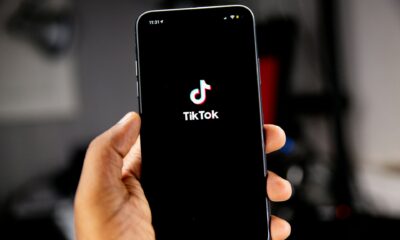Artificial Intelligence
South African Businesses Face AI-Driven Cyber Threat Surge, but Only 5% Are Ready

South African businesses are stepping into a storm they may not be prepared for. A new report by Cisco shows that just 5% of companies in the country are fully ready to handle today’s complex cyber threats—especially those driven by artificial intelligence.
While AI promises faster detection and recovery, it’s also giving hackers sharper tools—and South Africa is playing catch-up.
AI: Friend and Foe in the Cyber Arms Race
According to Cisco’s 2025 Cybersecurity Readiness Index, 87% of South African organizations have already faced AI-related cyber incidents in the past year. The twist? Less than two-thirds of employees even understand how these threats work.
While AI tools are being embraced—92% of businesses are using AI to monitor and detect threats—the reality is that most security teams are still operating in the formative stages of readiness. They’re racing to catch up, but the gap is growing.
GenAI: The Silent Risk Inside Your Business
Generative AI (GenAI) is popping up everywhere—and often in the shadows.
Nearly half of local employees use approved third-party GenAI tools, but a worrying 21% have unrestricted access to public GenAI platforms. Even more alarming? 40% of IT teams have no idea their staff are interacting with these tools at all.
This oversight opens the door to data leaks, compliance issues, and new cyber vulnerabilities—especially when staff are using personal devices or unsecured networks.
Talent Shortages and Budget Blind Spots
The skills gap is a major bottleneck. 78% of South African organizations say they don’t have enough trained cybersecurity professionals, with more than half needing to fill at least 10 roles.
Meanwhile, spending priorities aren’t helping. Only 8% of companies allocate more than 10% of their IT budget to cybersecurity, even though 22% expect major cyber disruptions in the next 12–24 months.
Overcomplicated Systems, Underwhelming Defenses
Over 60% of local organizations admit their current cybersecurity infrastructure is too complex, with more than ten separate security tools in play. Instead of improving response time, this patchwork approach often slows it down, making real-time threat management harder.
What Needs to Happen Now
Cisco’s leaders are calling for a major rethink. Fady Younes, head of cybersecurity for Cisco in the Middle East & Africa, says businesses must move from “incremental upgrades to integrated, AI-native security systems that can defend at machine speed.”
Smangele Nkosi, GM of Cisco South Africa, echoes the urgency: “To defend effectively, we need smarter AI tools, better security architecture, and more awareness of how AI itself can be used against us.”
South Africa’s businesses are accelerating digital transformation, but cybersecurity readiness isn’t keeping pace. Without urgent investment in AI-driven defense, smarter strategies, and skilled talent, the risk of a national cyber crisis looms large.
The message is clear: AI isn’t just reshaping industries—it’s rewriting the rules of security. Adapt now, or face the consequences.
{Source: IT Africa News}
Follow Joburg ETC on Facebook, Twitter , TikTok and Instagram
For more News in Johannesburg, visit joburgetc.com



























